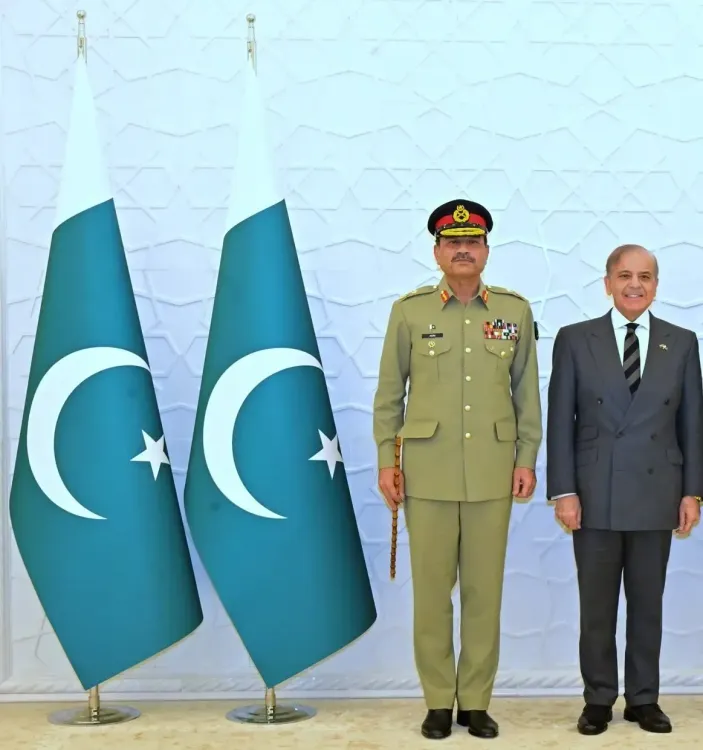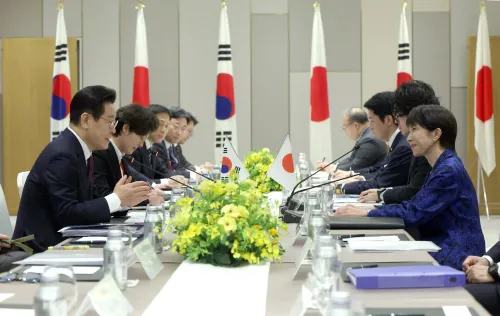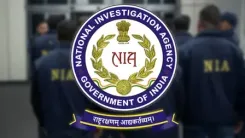Is the Proposed Constitutional Amendment a Threat to Democratic Governance in Pakistan?

Synopsis
Key Takeaways
- Proposed 27th Amendment raises concerns about military dominance.
- Critics argue it undermines judicial independence.
- Supporters claim it will enhance governance.
- Opposition from pro-democracy leaders is growing.
- The amendment could lead to significant changes in political structure.
Kabul, Nov 12 (NationPress) The delicate democratic framework of Pakistan appears to be entering a new chapter as the equilibrium between civilian leadership and military influence shifts further towards the latter, as noted in a report released on Wednesday discussing the proposed 27th Amendment. This amendment has raised alarms among political analysts, legal professionals, and international stakeholders regarding the future of democratic governance in Pakistan.
"The 27th Constitutional Amendment has ignited significant controversy. Reports indicate that the amendment would create special constitutional courts, reinstate executive magistrate powers, and allow for the transfer of judges—changes that opponents argue could undermine judicial independence," a report from Afghanistan-based Khaama Press outlined.
The report detailed how Pakistan Army Chief Asim Munir has acquired substantial control over the nation’s economy and politics.
"It also aims to modify fiscal and administrative relations between federal and provincial governments by centralizing authority over vital issues like education and population welfare. One of the most contentious aspects pertains to Article 243 of the Constitution, which outlines the command of the armed forces. Observers warn that the amendment might introduce a new role of 'Commander-in-Chief' above the Chief of Army Staff, formalizing a hierarchy that could further amplify military power," the report elaborated.
Proponents of the amendment argue that it will bolster governance and enhance national stability, while critics assert that it signals a significant departure from parliamentary democracy and the federal system established in the 1973 constitution. Despite backlash from segments of the opposition, the legal sector, and civil society, the amendment is anticipated to progress through both houses of parliament, reflecting the military's institutional influence and the weakened state of political opposition.
Leading political figures have expressed trepidation over the decline of democratic principles in Pakistan. A newly formed coalition of pro-democracy leaders, including former National Assembly Speaker Asad Qaiser and former Senator Mustafa Nawaz Khokhar, have vowed to resist the constitutional amendments both inside and outside parliament. They argue that the proposed changes jeopardize the principle of separation of powers and threaten to dismantle the safeguards of democracy, the Khaama Press report noted. Some cabinet members are also reportedly uneasy about the extent of the proposed reforms.
The suppression of opposition in Pakistan has further exacerbated the democratic crisis. Former Prime Minister Imran Khan has been imprisoned since 2023, with many party leaders and supporters also detained or coerced into silence. Civil society organizations and human rights groups have raised flags over restrictions on free speech, political assembly, and media independence. In September, a bipartisan group of US lawmakers introduced the Pakistan Freedom and Accountability Act (HR 5271), proposing sanctions on individuals responsible for human rights violations and anti-democratic actions.
"Experts caution that the concentration of power under military authority could have far-reaching consequences for Pakistan’s political stability and its role in the region. With civilian entities increasingly marginalized and judicial independence under pressure, the nation risks slipping into a phase of entrenched authoritarianism reminiscent of past military regimes. Should the 27th Amendment be enacted, it would signify one of the most pivotal shifts in Pakistan’s constitutional and political landscape, reshaping the dynamics between the military, judiciary, and elected officials.
"Pakistan’s democracy stands at a crucial crossroads. The decline of civilian authority, coupled with economic and social instability, poses significant challenges not only for governance but also for the country’s long-term stability and its relations with the global community. The forthcoming weeks may determine whether Pakistan can maintain its democratic institutions or if it will succumb to a new era of overt military control," the report highlighted.










